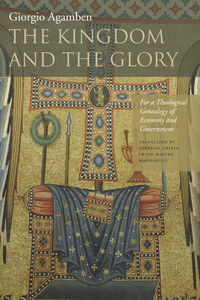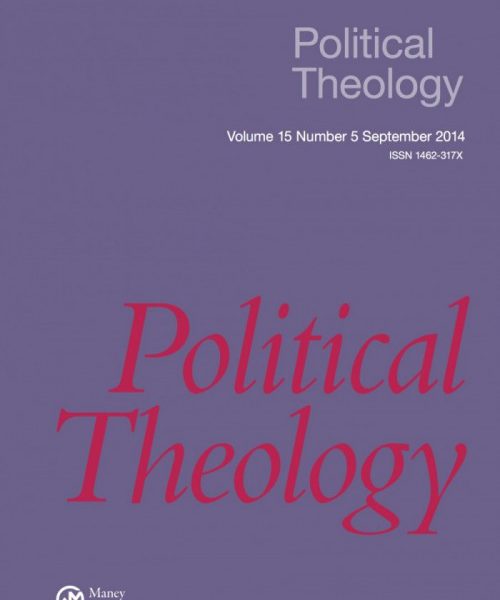
The subtlety and poetry of Nancy’s language can mask the rigor and the urgency of his thinking. I hope to share that rigor and urgency here, particularly as it relates to global capitalism, Christianity, and ontology.

Glory doesn’t work. Amen.
This condensed assertion and acclamation get at the heart of Giorgio Agamben’s The Kingdom and the Glory, the second part of the second part of his Homo Sacer project (whose volumes include Homo Sacer, State of Exception, and Remnants of Auschwitz). The Kingdom and the Glory’s subtitle, For a Theological Genealogy of Economy and Government, allusively explains the Foucaultian-feeling rhythms according to which this text pulses—rhythms that animate the Homo Sacer project from its inception but which come to archaeological fruition in The Kingdom and the Glory. In Foucaultian fashion, The Kingdom and the Glory’s initial six sections trace a meticulous, albeit particular, conceptual genealogy through early and medieval Christian theologies (a genealogy replete with long quotations that serve as evidential support) whose impetus comes, indirectly, from an intertextual conversation between Erich Peterson and Carl Schmitt, which recurs throughout Agamben’s text. More directly, the impetus comes from Agamben’s explicit aim of catching, via theology, “a glimpse of something like the ultimate structure of the governmental machine of the West in the relation between oikonomia and Glory” (xii)—a relation he casts in State of Exception in terms of auctoritas and potestas. […]
